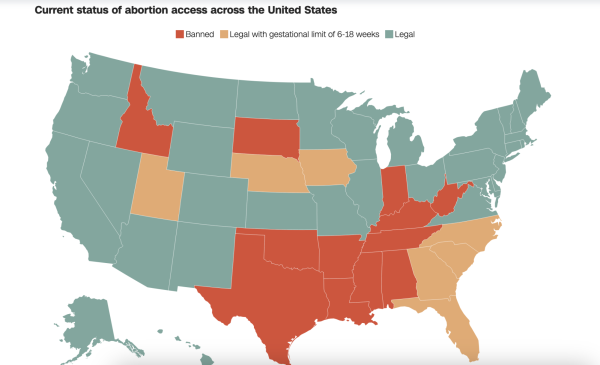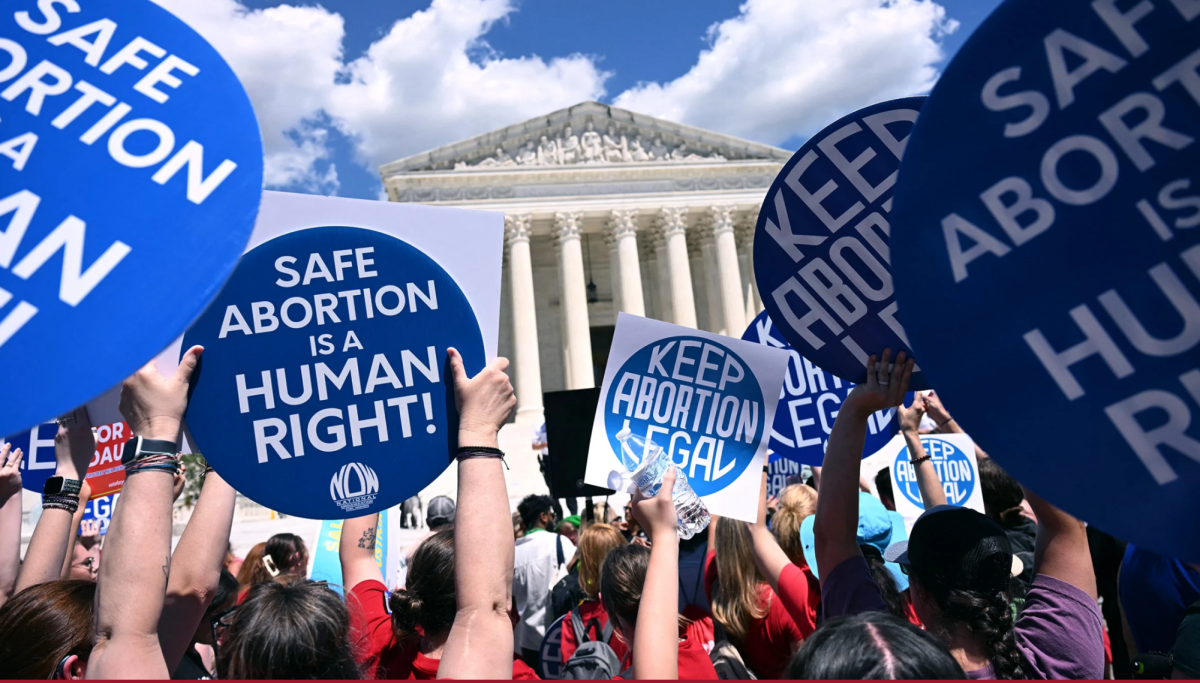Abortion has been an extremely prominent and controversial issue for Americans for some time now. This has become especially prominent with the overturning of Roe v. Wade in 2022. The question is how much the Trump administration will continue to change abortion policies over the next four years. It appears that the answer is – a lot.
Roe v. Wade was a 1973 Supreme court decision that protected personal privacy, including the right for a woman to decide whether or not to have an abortion. This placed reproductive rights alongside other liberties such as freedom of speech, and freedom of religion, as explained by the Center for Reproductive Rights.
In 2022, Roe v. Wade was overturned by Dobbs v. Jackson Women’s Health Organization.
Since then, the issue of abortion has become critical for Americans who care about government infringement on women’s autonomy and reproductive health rights. Without having the control to make decisions regarding their own health and their bodies, many women are left feeling scared and threatened. If critical health care is denied to women, it can have detrimental effects on the mother and families as a whole.

So how will President Trump impact abortion policy? Trump made a campaign promise not to implement a national abortion ban. However, there are several ways he could further limit abortion access, NBC news claims. Trump’s stance on abortion has varied over the years. He has supported multiple bills that would ban abortion after 15 or 20 weeks gestation, and appointed Supreme court justices who were instrumental in overturning Roe v. Wade.
In a 2024 presidential debate between Donald Trump and Kamala Harris, the candidates discussed their stances on abortion. Kamala Harris claimed that, if prompted, Trump would sign a national abortion ban. His response was as follows: “it’s a lie. I’m not signing a ban, and there’s no reason to sign a ban, because we’ve gotten what everybody wanted, Democrats, Republicans and everyone else, and every legal scholar wanted it to be brought back into the states.”
Trump’s appointees to the Food and Drug Administration (FDA) could make an effort to prevent women from accessing the prescription drug Mifepristone, an abortion pill, via telehealth or through the mail. A way this could happen is requiring the drug be distributed in person, or rescinding the licensing of the drug. According to NBC news and a March study by the Guttmacher Institute, medication abortion accounted for 63% of abortions nationally last year. Medication abortion has become increasingly vital for women and couples seeking to end a pregnancy because so many states have made it difficult – if not impossible – to obtain an abortion in person. Due to that fact, policies to limit access to abortion medication could be powerful and detrimental for people seeking to have an abortion, as many people have limits when it comes to how far they can travel for care.
An additional possibility involves Trump’s appointees to the Justice Department. If legal challenges arise relating to the abortion pill, Justice Department personnel could choose not to defend it. A tactic for Trump’s legal team could involve the Comstock Act of 1873. This law prohibits the mailing and receiving of “obscene” materials and those designed or intended to procure an abortion, according to NBC news. This act would allow people to be criminally charged for sending or receiving any kind of compounds that could be used for abortions.
Some of the limitations that existed during Trump’s previous term are expected to be reinstated. According to NBC news, most polls are swinging towards states being opposed to a national abortion ban. Because of this, Republican members of Congress may be wary of sponsoring a ban bill.
This is an important time in history because while women had a constitutional right to abortion for 50 years, this right has been taken away and sent to the individual states. As of February 2025, 19 states ban or severely restrict abortion in the U.S. It is essential for women to be able to decide what to do with their bodies and pregnancy. Because of the laws restricting abortion access, many women are denied critical care and their lives are put at risk.








